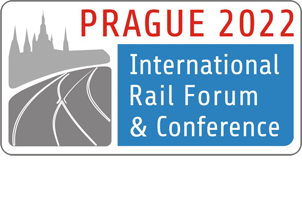IRFC 2022 takes place from 5 to 7 October 2022 – in the middle of the Czech Presidency of the Council of the EU. It will therefore be possible to discuss whether the Czech Republic’s priorities for transport, and especially for rail, have been set correctly during the Presidency. One of the priorities of the Czech Presidency is also a strategic decisions on design and construction of a high-speed rail network in the Czech Republic and in Central and Eastern Europe in the near future. This is a topic that reflects the importance of connected Europe and the links between HSR and urban mobility. A great benefit of the conference will be the fact that representatives of infrastructure managers of CEE countries, industry and railway companies will be able to discuss in one place with representatives of state administration, regional governments and the Parliament of the Czech Republic.
The IRFC conference has long focused on all important and strategic areas of the rail system. This consists of several very distinct parts. The second day of the conference has a very busy programme. In the morning session the research and innovation area is on the agenda, followed by this session on high speed rail after lunch. The session will be moderated by Jiří Svoboda, Director General of Správa Železnic, the Czech Railway Administration, with presentations by the Ministry of Transport of the Czech Republic, SNCF (French Railways), ÖBB (Austrian Railways) and also a representative from the East Japan Railway Company will explain the business model of high-speed transport in Japan. The panel discussion will be attended by members of the Chamber of Deputies of the Parliament of the Czech Republic, a member of the European Parliament and a governor of one of the Czech regions involved. Poland’s Centralny Port Komunikacyjny will also take part in the discussion. Participants will be able to learn whether, how and when the countries of Central and Eastern Europe could benefit from travelling between Berlin – Prague and Vienna in times comparable to those between the main business centres in France, Germany, Italy or Spain. Not only that, but there will certainly also be talk of how the construction and operation of HSR will affect the capacity of currently used conventional lines so that they can be more available for rail freight, thus helping to relieve the road infrastructure of heavy freight traffic in long distance over 300 km. The moderated discussion will then provide space for any additional explanations and answers to questions from the audience.
